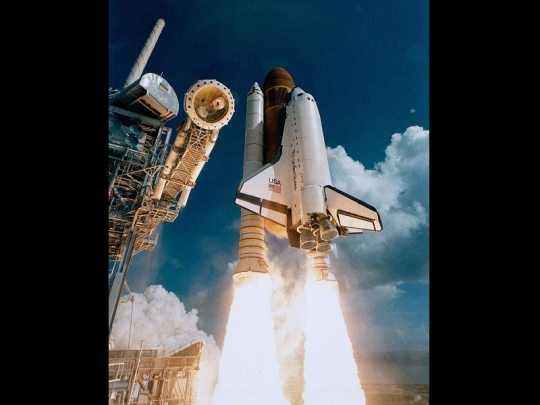The end of the future: The last Shuttle flight


When I was older I followed the Mercury, Gemini, and Apollo missions religiously, and when Neil Armstrong set foot on the moon I watched on a static filled color TV at a science camp. I dreamed of working at NASA, and, oddly enough, despite my liberal arts degrees I ended up working at NASA's Goddard Space Flight Center (GSFC) in the 80s. During my time there I met astronauts, worked at GSFC's Spacecraft Tracking and Data (Acquisition) Network (STDN) for eight Shuttle missions and I saw the Challenger disaster.
After that horrible day, I saw, and in a very, very small way, helped NASA return to flight. Then, I left NASA. I did it because I was starting my career as a technology journalist and because I had learned how NASA was slowly dying on the vine.
A friend asked me recently how we ever ended up giving up-and make no mistake about it that's what we're doing-on manned space-flight. My answer was, "When haven't we?"
In 1969, with Apollo 11 going to the moon, the U.S. reached its apex of interest in space. It's been all down hill ever since then. When I was in Goddard in the 80s, I discovered that NASA's missions were being held together with duct-tape, bailing wire, and the devotion of staffers who wouldn't give up on the dream of space.
What do I mean by that? In 1989, my last year at NASA, one of my jobs was to monitor the health of all our Earth-bound network connections for Shuttle systems using a database system I'd developed. In the course of that I discovered that we were still using Telex lines from the 1950s, capable of 110-bits-per-second (BPS), for tertiary communications.
Look at the Shuttle itself. It's 1970s technology. We should have built better; we should be on our third generation of manned space-ships. By 2011, we should have Earth to near-earth orbit shuttles that can take off and land from any major airport. Instead, Atlantis, which has just lifted off, is the last of the true government-sponsored Earth space ships I expect to see in my lifetime.
Orion? NASA and Lockheed Martin's Orion crew module spacecraft? It's a step backward to the multi-stage rocket days. The real future of manned space-flight lies in companies like Virgin Galactic's SpaceShipTwo.
As for NASA, though, no matter what NASA director Michael Griffin says about that the space shuttle and International Space Station (ISS) being mistakes, the truth of the matter is NASA's has been slowly dying for decades due to lack of sufficient funding and executive vision. By now we should be on Mars. Instead, we're looking down at the ground at our feet.
There's a lot to be said for looking at our own world from space, but at one time we were also looking at the stars. I wish, oh how I wish, we still were looking to the skies and reaching out to them. Instead, manned space-flight is returning to where it began: science-fiction.
God speed Atlantis. May your final flight end with a successful return.
Related Stories:
Requiem for America's space shuttle program
NASA's last Shuttle mission: What does this mean for the future of manned flight?
Shuttle Atlantis through the years (photos)